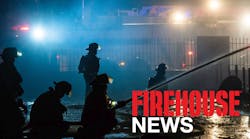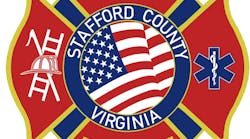The court's opinion includes a lengthy analysis of the Fair Labor Standards Act (FLSA) as it applies to public agencies. While this decision is based on the specific circumstances in Virginia Beach, it offers valuable insights for any combination department wrestling with the question of whether volunteer activities are permissible for employees. Indeed, at least one other major combination department (Baltimore County, MD) has cited this decision as the basis for lifting its prohibition against volunteering by county firefighters.
Virginia Beach firefighters and volunteer rescue squad crews often are dispatched jointly to medical emergencies. As first responders, firefighters are authorized to provide basic life support (BLS), but not advanced life support (ALS). ALS care is provided by the rescue squads, which are independently licensed by the state to provide such care.
The city's Division of Emergency Medical Services (DEMS) provides support for the EMS delivery system. Volunteer rescue squad members also are members of the DEMS. The DEMS also is responsible for BLS and ALS certification of rescue squad members as well as preparing monthly duty rosters assigning DEMS members to work shifts at the rescue squads.
The FLSA is a Depression-era law that provides overtime protection for employees. It is the basis for the 40-hour workweek and the requirement to pay overtime at a time-and-a-half rate. As the court notes, FLSA is designed to fairly compensate workers for the burden of working long hours.
The core of this dispute is whether the 11 firefighters who filed the suit were providing their services to the city or to a separate private entity (the rescue squads). The firefighters argued that they made their case by showing that DEMS, a city agency, directed the delivery of emergency medical services by both the rescue squads and the Virginia Beach Fire Department. The city agreed that rescue squad operations are coordinated by its department. The court acknowledged that DEMS has "fairly extensive amount of supervisory control" over the actual delivery of emergency medical services, but it concluded that the city's control is limited.
The rescue squads in Virginia Beach are separately incorporated, private, non-profit entities, neither governed nor controlled by DEMS. Instead, each squad is governed by a board of directors that is selected by the squad's members. No public official has any control over the membership of these boards. "The volunteer rescue squads are independently organized, private non-profit organizations," the court said.
Further, the individual rescue squads, and not the city, have authority over rescue squad membership. The rescue squads have the sole power to retain or expel the employees as members. Indeed, one of the plaintiffs was expelled from a rescue squad for missing meetings. Each of the plaintiff firefighters made an individual decision to join a rescue squad. The court concluded, "It hardly seems fair to require the city to compensate individuals for whom they do not have absolute authority to approve of and dismiss."
The worker's activities also must primarily benefit the employer if there is to be an employer-employee relationship. The plaintiffs argued that providing emergency medical services benefits the citizens of the city, therefore making them employees of DEMS and the city. However, the court rejected this claim by noting that under this logic, all of the 800 rescue squad members would then be considered employees. They are "members" of DEMS, but this does not mean they are employed by DEMS.
The court then considered some of the basic principles behind volunteerism. The FLSA definition of a volunteer has two requirements. First, there must be a "civic, charitable or humanitarian reason" to volunteer. Second, there must be no compensation or expectation of compensation for the volunteer services. The plaintiff firefighters stated in depositions that they were motivated to join the rescue squads not for career enhancement, but for the humanitarian purpose of helping the citizens.
Further, the services must be offered freely and without coercion (direct or implied) from the employer. The court relies on a variety of city documents illustrating the city's perception that the volunteers are "members" and not "employees." There was no evidence of coercion or undue pressure by the city on the plaintiffs to volunteer their services.
Thus, the court found that the plaintiffs met the requirements necessary to be classified as volunteers. It agreed with the city that the firefighters were not acting as city employees when they volunteered for the rescue squads. In a sharp rebuke of the plaintiff firefighters, the court concludes, "This court will not allow firefighters seeking time and one-half their regular pay for volunteer work to eviscerate the spirit of volunteerism that has characterized the rescue squads of the former Princess Anne County and now the city for over 50 years."
The court's opinion shows that there must be a clear separation between the department which employs the firefighter and the one where the firefighter volunteers in order to avoid FLSA liability. While operations can be integrated to some degree, the volunteer organization must be governed by a body that is not in any way controlled by the employing agency. The authority to make membership decisions is another important indicator of that independence.
This isn't the first, and almost certainly won't be the last court decision applying the FLSA to the fire service. Indeed, the decision has been appealed to the 4th Circuit Court of Appeals for review. But if it is upheld, it offers a valuable analysis of the law for other combination departments to review when considering whether to allow employees to volunteer their services.
The National Volunteer Fire Council (NVFC) has developed a handbook to help fire departments comply with the FLSA. To obtain a free copy of the handbook call the council at 888-ASK-NVFC.
Steve Blackistone, a Firehouse® contributing editor, is an attorney and a member of the Bethesda-Chevy Chase Rescue Squad in Montgomery County, MD.




